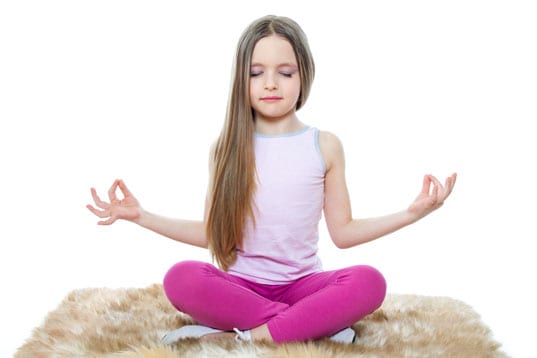Adults often commiserate about their busy schedules, hectic jobs, and difficulties managing their households and children’s activities. Yoga and meditation have become an important outlet for stress and anxiety for many adults. But do our young children also feel everyday stresses when managing major transitions, minor daily transitions, and busy, active lives? Meditation can be a great resource for kids who need a little extra help relaxing and directing their energy.
In a public school environments, The UCLA Center for Child Anxiety Resilience Education and Support (CARES) has put together a meditation program that allows children to practice regular meditations in an effort to center themselves and maintain control over their impulses and emotions. During transitions such as school pickup and dropoff, or in situations in which kids need to learn to separate from parents outside of school, the kids were better able to handle their emotions and deal with transition and separation in a calm way.
Yoga and meditation classes, when provided for older students on a regular basis, have been shown to boost proficiency on standardized tests, reduce suspensions, and improve attendance rates. Meditation has a positive effect on kids’ abilities to pay attention, control their impulses, and direct their energy so that they have better self control. These techniques could lead to better students, more attentive and responsible attendance of classes, and a decrease in discipline against troublesome student behavior.
How can you help your kids to try meditation at a very young age? Using one of these three guided, accessible meditation techniques can help children to learn to meditation even as toddlers and preschoolers. The “elevator” technique asks kids to imagine an elevator slowly lowering itself from their heads all the way to their toes, and can calm tense muscles. Your kids can also try the “counting breaths” technique, which can be a quick way to de-escalate stress in public situations, in order to prevent meltdowns. And pre-bedtime breathing is important to try when your kids have a difficult time allowing themselves to wind down before it is time to go to sleep.
Try some of these techniques with your kids. Have you noticed a difference? Tell us how meditating with your young children goes, in the comments section!

